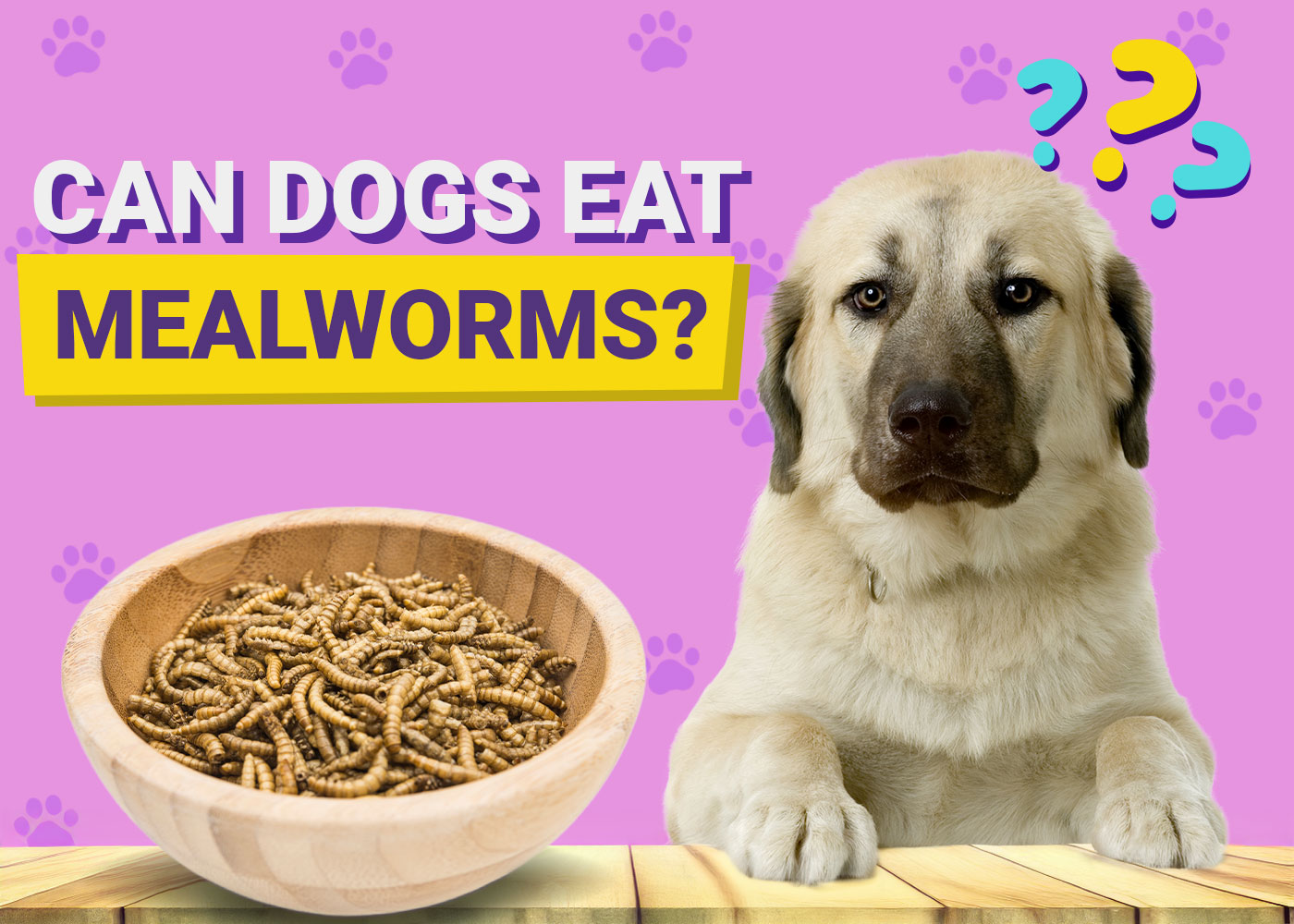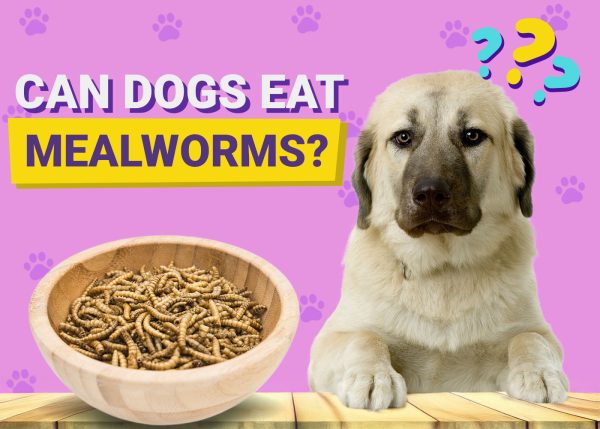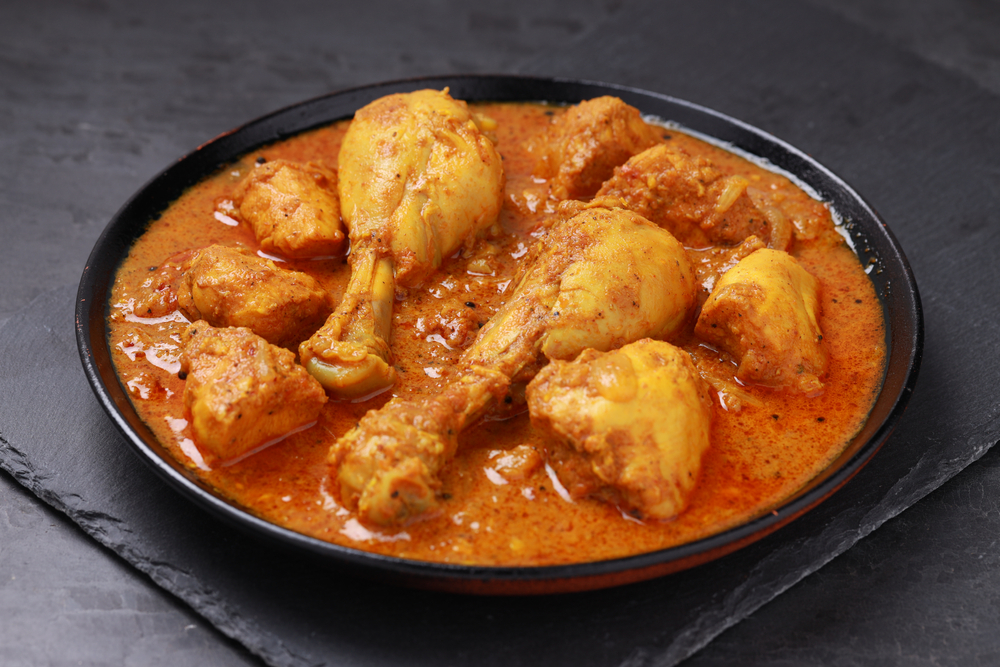Click to Skip Ahead
Does the idea of cozying up to a fresh bowl of mealworms appeal to you? Once you get past the ick-factor, you might be surprised to find out that mealworms and other insects are on track to becoming a big part of a sustainable pet food industry in the future. Many manufacturers are already developing brands that contain these alternative proteins. But is it safe for dogs to eat mealworms in the long run? Let’s find out.
Can Dogs Eat Mealworms?
Yes, dogs can eat mealworms. In fact, they are not only safe but also nutritious for dogs when fed in moderation. Mealworms can be a great source of protein and other essential nutrients that contribute to your dog’s overall health.
What Are Mealworms?
Mealworms are the larval stage of the darkling beetle (Tenebrio molitor). They are rich in protein, fat, and essential nutrients, making them a popular food choice for various animals, including birds, reptiles, and fish. Mealworms can be found dried, live, or in powder form, and their popularity is on the rise, in both pet foods and in pet treats.
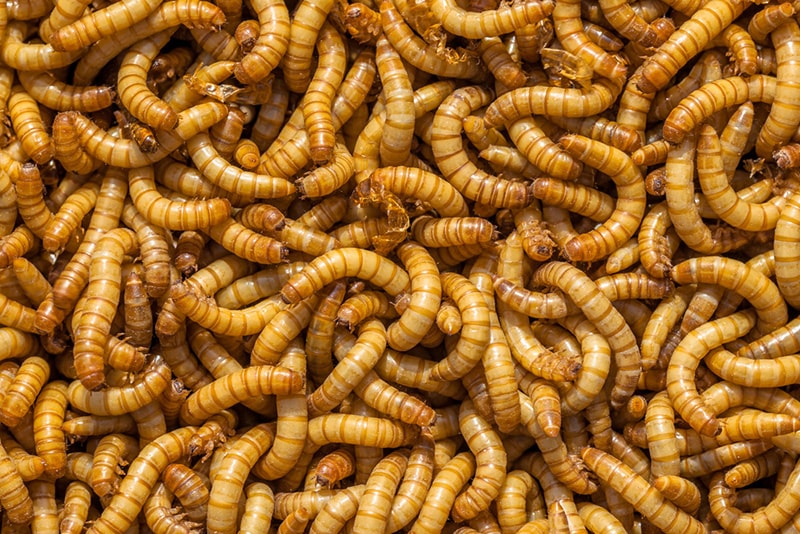
Nutritional Content of Mealworms
Mealworms are packed with essential nutrients that can be beneficial for dogs, including:
- High-quality protein
- Healthy fats, such as omega-3 and omega-6 fatty acids
- Essential vitamins and minerals, including B vitamins, iron, and zinc
Benefits of Feeding Mealworms to Dogs
Incorporating mealworms into your dog’s diet can offer several benefits, making them an attractive option for pet owners looking for alternative protein sources.
1. High-Quality Protein Source
Protein is crucial for maintaining your dog’s muscles, skin, coat, and overall well-being. Mealworms provide a high-quality, easily digestible protein source that can support your dog’s growth and maintenance needs. Their amino acid profile is comparable to that of traditional protein sources, ensuring that your dog receives the essential building blocks for healthy tissue and organ function.
2. Allergy-Friendly Alternative
For dogs with allergies or sensitivities to common protein sources like chicken, beef, or fish, mealworms can serve as an alternative protein source that may not trigger allergic reactions. Many pet owners have found success in alleviating their dog’s allergy symptoms by switching to insect-based proteins, as they are less likely to cause the immune system to overreact.
3. Environmentally Sustainable
Insect farming, including mealworms, is considered more environmentally sustainable than traditional livestock farming. It requires less land and water, and produces fewer greenhouse gas emissions. Insects like mealworms also have a much lower feed conversion ratio, meaning they require less food to produce the same amount of protein compared to traditional livestock. By choosing to incorporate mealworms into your dog’s diet, you are also making an eco-friendlier choice that contributes to a more sustainable food system.
4. Improved Gut Health
Mealworms contain chitin, a natural fiber found in their exoskeleton. Chitin has prebiotic properties, which means it can support the growth of beneficial gut bacteria in your dog’s digestive system. A healthy gut microbiome is essential for optimal nutrient absorption, immune function, and overall well-being.
5. Novel Taste and Texture
Introducing mealworms into your dog’s diet can provide a novel taste and texture that may pique their interest, especially for picky eaters. This new addition to their diet can help stimulate their appetite and encourage them to try new foods, promoting a more diverse and balanced diet.
How to Feed Mealworms to Your Dog
There are several ways to incorporate mealworms into your dog’s diet.

Dried Mealworms
Dried mealworms can be fed as a treat or mixed with your dog’s regular food. Make sure to introduce them gradually and monitor your dog’s reaction, especially if they have never tried insects before.
Mealworm-Infused Dog Food
Some dog food brands now offer insect-based products, including those made with mealworms. These products can be an easy way to include mealworms in your dog’s diet without having to handle the insects yourself.
Homemade Treats
You can also use mealworm powder or dried mealworms to create homemade dog treats. Try mixing mealworm powder with other dog-safe ingredients like pumpkin puree, oats, and peanut butter to make nutritious and delicious snacks for your furry friend.
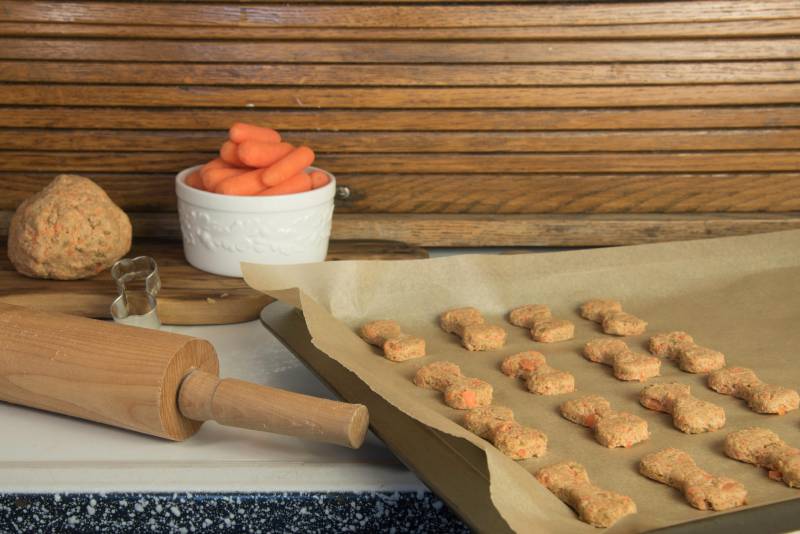
Precautions and Potential Risks
While mealworms are generally safe for dogs, there are some precautions to keep in mind to ensure that your dog enjoys this new addition to their diet without any adverse effects.
1. Gradual Introduction
Introduce mealworms gradually into your dog’s diet to avoid potential digestive upset or allergic reactions. Start with a small amount and monitor your dog’s reaction. If they tolerate the mealworms well, you can slowly increase the quantity over time. Pay close attention to any changes in your dog’s behavior, appetite, or stool consistency as you introduce mealworms.
2. Portion Sizes and Moderation
Be mindful of portion sizes when feeding mealworms to your dog. Like any treat, mealworms should be fed in moderation and should not replace a balanced diet. Overfeeding mealworms could lead to excessive calorie intake, weight gain, or an unbalanced diet lacking essential nutrients. It’s essential to maintain a proper balance between your dog’s regular food and any treats or supplements, including mealworms.
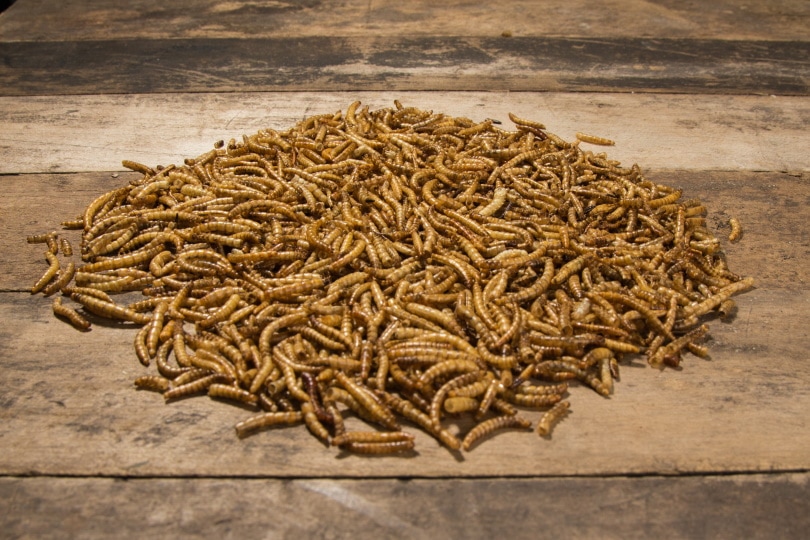
3. Quality Control
Ensure that the mealworms you purchase are specifically intended for animal consumption and are free from pesticides or other harmful substances. Look for reputable suppliers that offer high-quality, safe mealworm products. Feeding your dog contaminated mealworms could pose health risks, so it’s crucial to source them responsibly.
4. Choking Hazard
While uncommon, mealworms could pose a choking hazard for smaller dogs or those that tend to gulp their food. To minimize this risk, consider crushing the dried mealworms or mixing them into your dog’s food to make them easier to consume safely.
5. Individual Dog Needs
Keep in mind that every dog is unique, and their dietary needs may vary based on factors such as age, size, activity level, and overall health. Consult with your veterinarian before making significant changes to your dog’s diet, including the introduction of mealworms. Your vet can provide personalized guidance on the appropriate portion sizes and frequency for feeding mealworms to your dog.
PangoVet. It’s an online service where you can <b>talk to a vet online</b> and get the personalized advice you need for your pet — all at an affordable price!
</p>
<div class="su-button-center"><a href=https://www.dogster.com/dog-nutrition/"https://pangovet.com/?utm_source=dogster&utm_medium=article&utm_campaign=dog_eat_drink%22 class="su-button su-button-style-default" style="color:#FFFFFF;background-color:#FF6600;border-color:#cc5200;border-radius:9px;-moz-border-radius:9px;-webkit-border-radius:9px" target="_blank" rel="nofollow"><span style="color:#FFFFFF;padding:0px 24px;font-size:18px;line-height:36px;border-color:#ff944d;border-radius:9px;-moz-border-radius:9px;-webkit-border-radius:9px;text-shadow:none;-moz-text-shadow:none;-webkit-text-shadow:none"> Click to Speak With a Vet</span></a></div></div></div>"}" data-sheets-userformat="{"2":513,"3":{"1":0},"12":0}"> If you need to speak with a vet but can’t get to one, head over to PangoVet. It’s an online service where you can talk to a vet online and get the personalized advice you need for your pet — all at an affordable price!

Conclusion
Mealworms can be a nutritious and sustainable addition to your dog’s diet when fed in moderation. They provide high-quality protein, essential fatty acids, and vitamins and minerals that can benefit your dog’s overall health. Remember to always introduce new foods gradually and monitor your dog’s reaction to ensure they enjoy their new treat without any adverse effects.
Featured Image Credit: Elena Schweitzer, Shutterstock

